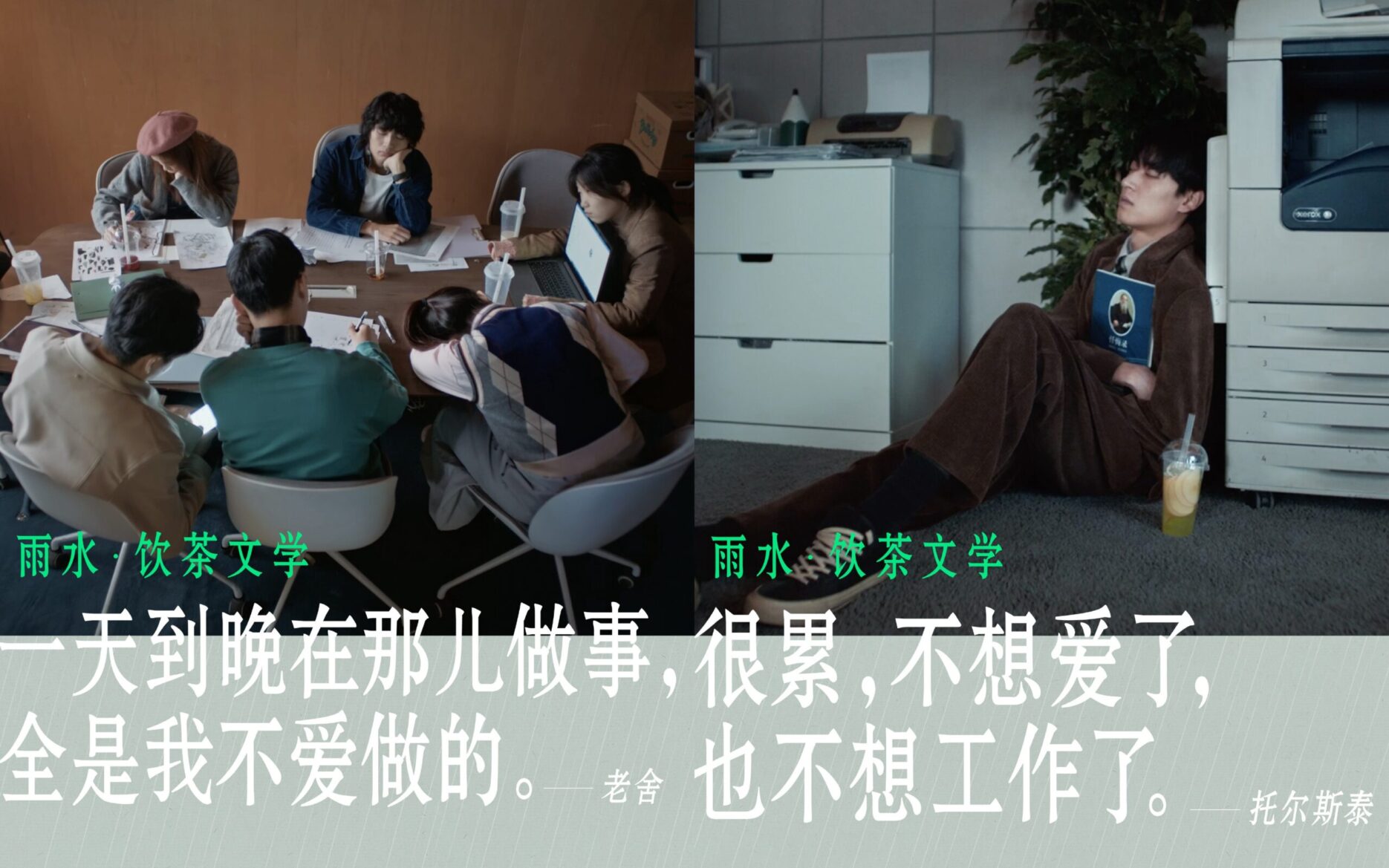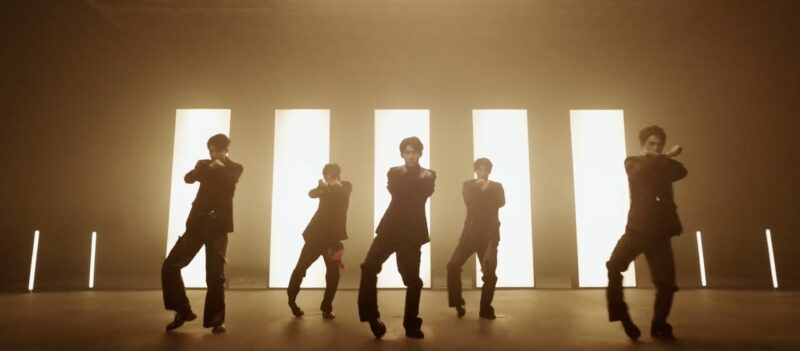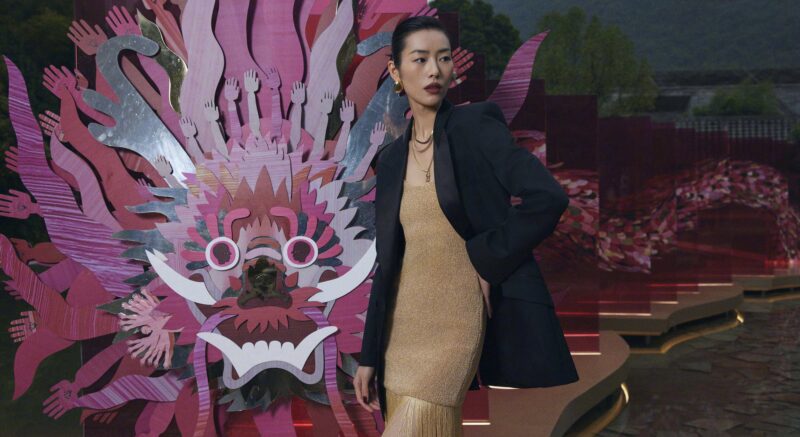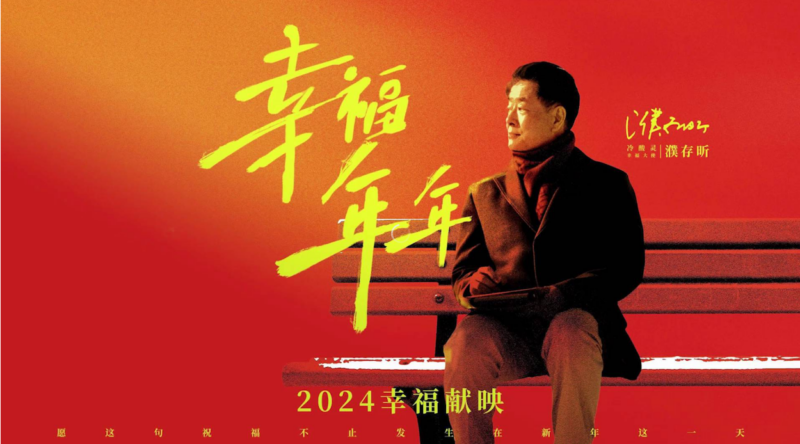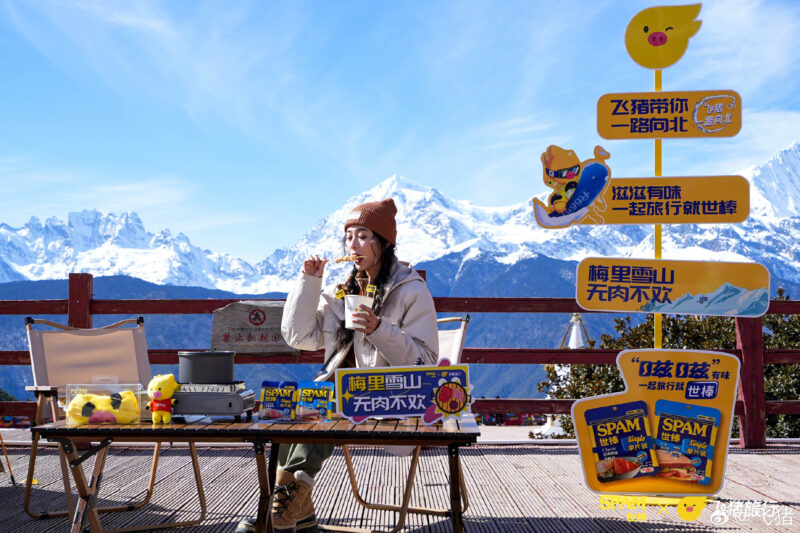Key Takeaways
- The post-Spring Festival return to work coincides with Yushui, the second solar term in the Chinese lunar calendar.
- The food delivery platform Ele.me brings new significance to this traditional occasion by empathising with young workers toughing it out at office jobs.
- The younger generations’ interest in solar terms is increasing as they lend a “sense of ceremony” (仪式感) to the passing of the seasons.
This week marks the end of the weeks-long Spring Festival shutdown and the resumption of business as usual for offices across China. Like the first day back at work after Christmas or Blue Monday (the third Monday in January, said to be the most depressing day of the year by UK travel company Sky Travel), Monday February 18 was a slog for many Chinese. After the excitement of the festivities, the daily grind seems bleaker than usual. On top of that, Chinese workers have a six-day working week to contend with, a stipulation to make up for lost time.
But this period has another meaning. Yushui (雨水, literally “rainwater”), is the second of the 24 solar terms that punctuate the Chinese lunar calendar. Beginning around February 18 and ending around March 4, Yushui traditionally marks the arrival of warmer temperatures, nourishing rain for crops, and the first stirrings of animal activity after a long, sleepy winter.
Like the first day back at work after Christmas, Monday February 18 was a slog for many Chinese.
Capitalising on the growing popularity of solar terms in marketing, the food delivery platform Ele.me brings new significance to this occasion by empathising with young workers toughing it out at stultifying office jobs.
Teatime = break time
As the voiceover on Ele.me’s campaign advert explains, Yushui was historically a time set aside for reading and drinking tea as the heavy rainfall forced peasants to put down their tools and rest. Ele.me transposes this tradition onto the urban white-collar lifestyle, showing grey-tinted office scenes with despondent, sleepy workers.
Each scene of a depressed worker slurping tea in the office is paired with a quote from a famous 20th-century writer or philosopher. The quotes all reflect either a sense of malaise or a pleasure in doing nothing. Examples include “When Monday arrives, my soul is like a white fog” and “I believe that taking a break is legal”. From Kafka to Lu Xun, the quotations are shockingly fitting with the plight of the modern office worker and are humorously paired with jaunty bottleneck guitar music. The advert closes out with the line “It’s good to drink tea when it rains. When there’s tea, there’s rest.”
Ele.me transposes the tradition of Yushui onto the urban white-collar lifestyle
To encourage participation in this tea break – or “paid leave” as the advert terms it – Ele.me offered customers 50% off selected drinks between February 17 and 19. There were further chances to get involved online. On China’s Twitter-like platform Weibo, the first 10 users to repost and comment with their favourite type of milk tea each nabbed a 1000 RMB (139 USD) coupon. This sum could buy as many as 50 cups of bubble tea at the standard price, making it a small fortune for tea lovers and beleaguered workers.
Ele.me’s approach to seasonal marketing
Ele.me has been making strong efforts with seasonal marketing, especially around solar terms. Last year, the brand put on a concert for Qingming (Tomb-Sweeping Festival and the 5th solar term) in April, marketing it as a “therapeutic party” for people to “lie down, relax, and eat Qingtuan” (a seasonal snack). Playing into the plight of office workers once again, mock-ups of annual leave request letters were provided at the event.
Then in December, the brand went viral on Weibo with its campaign for Dongzhi, the 22nd solar term denoting the arrival of winter. In the advert, renowned writer Xu Zhiyuan delivers a treatise on why workers should take a day off for the winter solstice, with arguments like “because dumplings deserve a holiday of their own”. The topic landed on the platform’s Hot Search list and amassed more than 300 million views.
The younger generations’ interest in solar terms is increasing as they lend a “sense of ceremony” (仪式感) to the passing of the seasons, making them an excellent promotional framing for limited-time products and offers. By incorporating lesser-known ones like Yushui into creative campaigns, Ele.me is styling itself as a cultural educator for young people.
Brands against burnout
Ele.me’s Yushui campaign also hits at something troubling young people in China, who have not met with much sympathy in recent times despite their clear exhaustion and disillusionment. Hordes of fresh Chinese graduates are now finding they are qualified for white-collar jobs that simply aren’t there. But instead of meeting sympathy for grinding their way through the education system for little reward, the younger generation has been derided for being choosy. As youth unemployment soared last year, the state media lambasted the jobless, blaming their predicament on the fact they are “unwilling to engage in jobs that are lower than their expectations”.
While Ele.me’s advert does not engage explicitly with this issue, its incitement to take a break is a gentle pushback against 996 working culture, another major source of young people’s dissatisfaction. Young people in China have limited freedom to lash out publicly against the systemic sources of these problems. So when major brands like Ele.me advocate for rest, it tells young people they are still seen.




